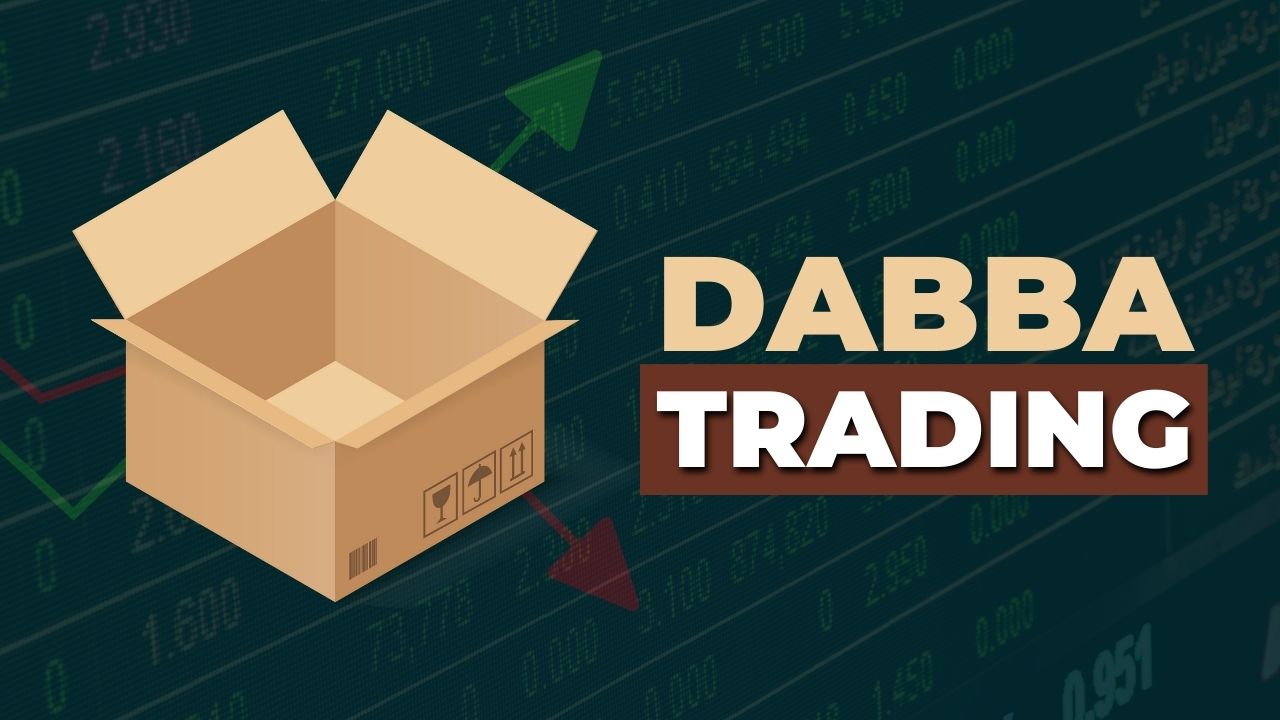Have you ever heard of “dabba trading”? It sounds a bit unusual, but it’s a serious issue in the trading world. Let’s break down what dabba trading is, how it relates to CFDs (Contracts for Difference), and whether it’s legal.
Table of Contents
What is Dabba Trading?
Dabba trading is an illegal type of trading where deals are not recorded on the stock exchange. Instead, they happen secretly through untrustworthy brokers or websites.
These trades are not approved by any official rules, which makes them very risky and illegal.
‘Dabba’ means box. Brokers often used metal lunchboxes (called dabbas) to secretly record these off-market trades.
- People started calling the secret stock bets “dabba trading” because the records of the trades were kept in a dabba (box) instead of being recorded by the stock market
How Dabba Trading Works?
Dabba trading works by making stock market deals without using official stock exchanges like NSE or BSE. In this type of trading, the broker and the trader make a deal between themselves without recording it officially. No real buying or selling of shares happens. It is just a bet on the price movement.
In official stock exchanges, every trade is recorded properly, and it follows all government rules.
But in dabba trading, everything happens secretly without any record, making it illegal. Some people get involved in dabba trading by contacting local brokers who operate outside the legal system, but it is very risky and punishable by law.
Here is an easy example:
Imagine you and your friend are betting on a cricket match. Instead of going to an official place to place the bet, your friend just writes down who wins or loses. No real bet is placed anywhere. It is just between you two. This is similar to how dabba trading works. In dabba trading, no real buying or selling of shares happens on the stock market. Everything is done secretly without any official record.
What are CFDs?
Contracts for Difference (CFDs) are a type of financial product that allows traders to speculate on price movements of assets like stocks, commodities, or currencies, without actually owning the asset.
For example, if you think the price of gold is going to go up, you can enter a CFD that will pay you the difference between the current price and the future price if it does go up. If the price goes down, you pay the difference.
How Dabba Trading and CFDs are Related?
Dabba trading and CFDs are similar because, in both, you are betting on price changes without actually owning the assets. However, CFDs are legal and regulated in many countries, whereas dabba trading is not. Here’s how they are related:
- No Ownership: In both dabba trading and CFDs, you don’t actually own the underlying asset. You’re just betting on price movements.
- High Risk: Both involve high risk. In dabba trading, there’s the added risk of no legal recourse if things go wrong.
- Platform as Counterparty: In some CFD platforms, the platform itself acts as the counterparty to your trades, meaning they win when you lose. This is similar to how dabba traders operate, where they benefit from your losses.
The Dark Side of Dabba Trading
Some platforms misuse the concept of CFDs to carry out dabba trading. They attract traders with promises of easy profits and no brokerage fees, but in reality, they operate like a casino. The platform often manipulates prices, ensuring that traders lose more often than they win. These dabba trading platforms profit from client losses.
The Legality of Dabba Trading and CFDs
Dabba Trading: This is outright illegal in India. It bypasses official stock exchanges and regulatory oversight, leading to potential fraud and financial scams. Engaging in dabba trading can result in heavy penalties and legal action.
CFDs: CFDs, on the other hand, are legal in many countries but are heavily regulated. Regulators ensure that CFD providers operate fairly and transparently. However, in some regions, CFDs are banned or restricted due to their risky nature.
Why Should You Care?
Engaging in dabba trading or using unregulated CFD platforms can lead to significant financial losses. Here are some reasons to be cautious:
- Lack of Legal Recourse: If something goes wrong in dabba trading, you have no legal protection. Your money is essentially at the mercy of the broker.
- Price Manipulation: Unregulated platforms can manipulate prices to ensure you lose.
- High Losses: Both dabba trading and CFDs can lead to substantial losses, especially for inexperienced traders.
Final Thoughts
While dabba trading might seem like a quick way to make money, it’s illegal and full of risks. CFDs, although legal in many places, still carry high risks and require careful consideration and understanding before trading. Always trade on regulated platforms and be wary of offers that sound too good to be true. Remember, in trading, there’s no such thing as easy money.

